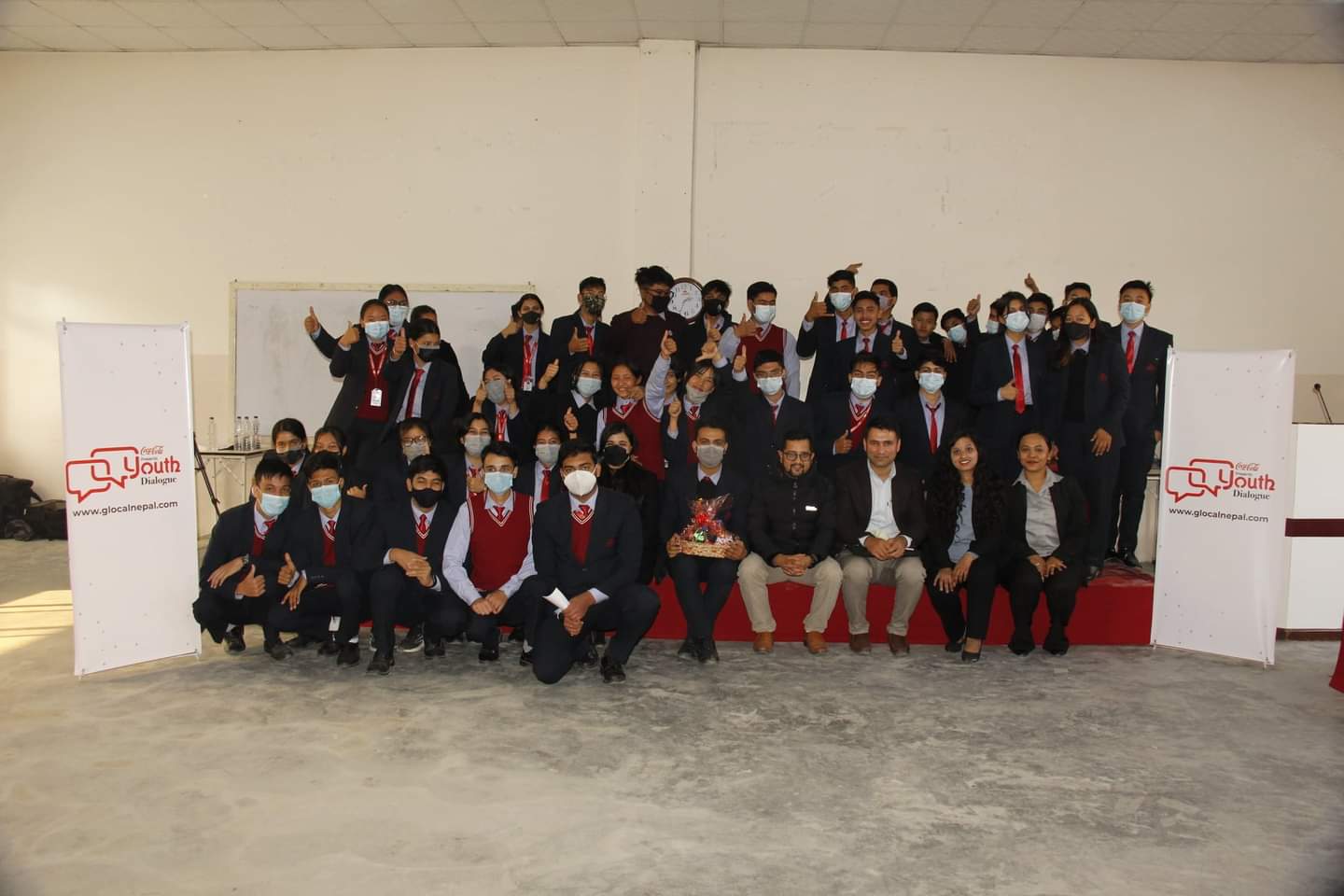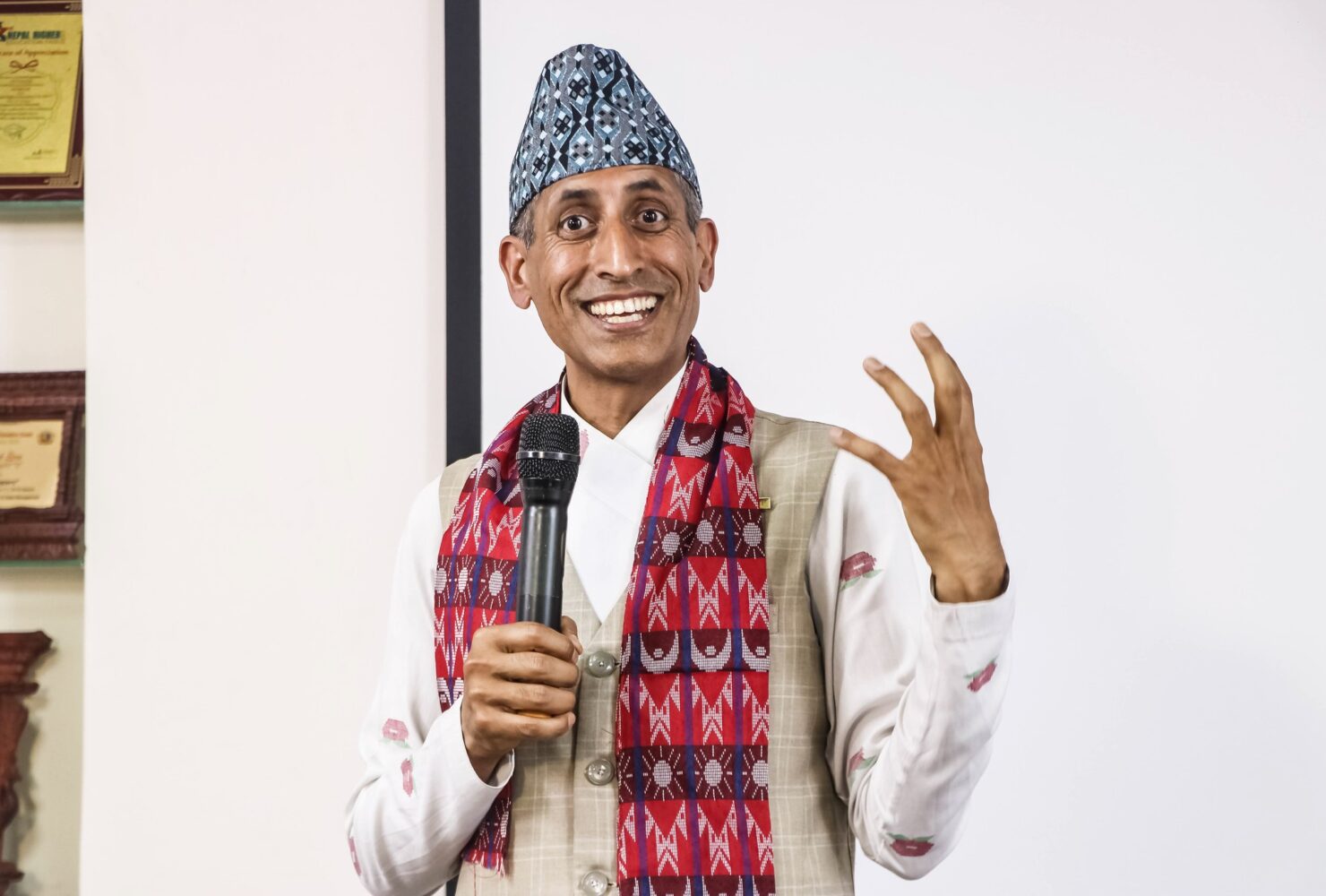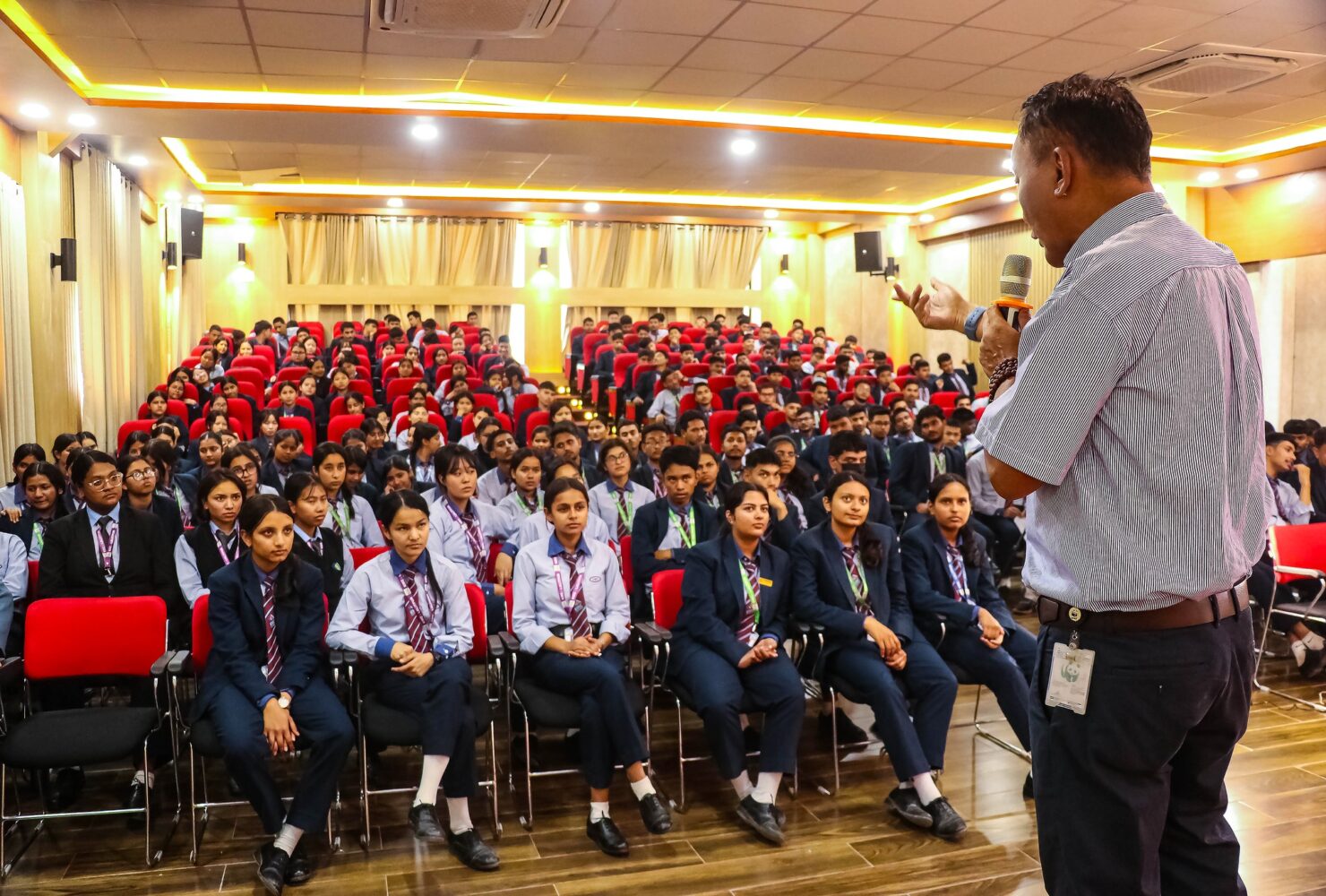Cola presents Youth Dialogue is a monthly series youth-centric discussion session organized by Glocal Pvt. Ltd. It is a platform that invites different personalities from different sectors to share their initiation, experiences, challenges and motivation.
Youth dialogue delivered exciting sessions on various themes like Sports, Environment, Entertainment, Business, Culture, Tourism to develop the skills in the changing labor market. The speakers of the program are Youth Influencers, Skillful persons, Entrepreneurs, Celebrities and Politicians. It is a 1- hour long discussion series that contains a live audience and later it will be broadcast through YouTube, Instagram and Facebook.
Youth Dialogue’s fourth session conversed on the topic of “Highlights of #COP26 and impacts of climate extremes in Nepal.” The session ended with a successful presence of students amidst an event held at the premises of Nami College. The dialogue had a presence of three amazing personalities and the participating panelists were;
- Mr. Basanta Paudel, Climate Change Adaptation Planning Expert
- Mr. Manjeet Dhakal, Head of LDC Support Team at Climate Analytics
- Ms. Sneha Pandey, Climate Diplomacy and Policy Analyst at Climate Analytics
The panel discussion was moderated by Ms. Saru Pyakurel, Communication Officer at Glocal Pvt. Ltd.
Here is the gist of the discussion;
The one-hour event included a stimulating discussion aimed at drawing the attention of all stakeholders and the general public to questions regarding climate change in Nepal, strategies adopted to ensure climate action, and the discussion also introduced Nepal’s discussion and agendas for the 2021 United Nations Climate Change Conference, also known as COP26, which was held in Glasgow, United Kingdom.
Mr. Manjeet Dhakal, one of the panelists, represented the government at COP26. When inquired about his experience at the event and the climate agenda offered by Nepal at COP26, he addressed, “COP26 brought parties together to accelerate action toward the Paris Agreement and UN Framework Convention on Climate Change goals.” Mr. Dhakal shared that the purpose of such climate conferences is to solve the problem.
He added- Nepal has already presented its NDC Synthesis Report alongside other countries, which will aid in the implementation of the roadmap to reduce greenhouse gas emission to zero by 2050 as per the 2015 Paris Agreement. The pact also set a goal of limiting global average temperature increases to 1.5 degrees Celsius and not reaching 2.0 degrees Celsius. Nepal is one of the countries that has been hardest hit by climate change. It has brought this issue to the attention of the global community. To mitigate climate issues, there should be effective plans to reduce the temperature, alternatives must be used.
Ms. Sneha Pandey discussed some of the world’s most pressing climate challenges. She noted that Nepal is highly vulnerable to climate change and has already experienced changes in temperature and precipitation at a faster rate than the global average. Nepal is vulnerable to a variety of climate risks and water-related hazards as a result of quick snow and ice melt in the highlands and torrential rainfall episodes in the foothills during the monsoon season, owing to its terrain. Climate change is expected to put millions of Nepalese people at danger, including reduced agricultural production, food poverty, strained water resources, loss of forests and biodiversity, and infrastructure damage. In Nepal, about half of greenhouse gas emissions come from the agriculture sector, followed by energy, land-use change and forestry, industrial processes, and waste.
Likewise, Mr. Basanta Paudel talked about Nepal’s climate adaptation & mitigation strategy. Climate change has been labeled a “wicked problem”, one that is characterized by many underlying strata of nested and unforeseen predicaments. As the inter-linkages among these many predicaments are complex, the solution to this problem falls outside the comfort zone of our conventional knowledge systems. We need an interdisciplinary understanding of the challenges faced and the solutions sought, mediated through plural institutional approaches. Nepal should therefore focus on how to cope up with changing climate & identify solutions for the same.
He added that for a long Nepal has been working on Climate Change Mitigation. If we address more on agendas of climate change, we have to identify the best practice that has been implemented in the global arenas. Climate change is becoming already dangerous to our survival and we have to do everything possible to prevent it from being catastrophic to us. The globally accepted strategy to contain disastrous climate change impacts is Adaptation and Mitigation. For a least developed country such as Nepal, adaptation should be the priority. Nepal is currently preparing the National Action Plan on Adaptation (NAPA), which should be made as comprehensive and topical as possible. Well-coordinated, quick and serious implementation of NAPA will be extremely important to mitigate and adapt to the growing impacts of climate change in Nepal.
Following that, Mr. Dhakal shared the measures that need to be taken by youths to ensure climate action. Ms. Pandey discussed some of the most important strategies for strengthening climate action, as well as the necessity of youth participation from a variety of backgrounds in policymaking to take climate action.
After completion of the first segment of the panel discussion, a floor was made open for the audience who wanted to ask questions to our panelists. One of the students was awarded a gift hamper from Coca-Cola as a Youth Booster Question.





